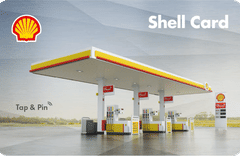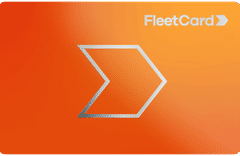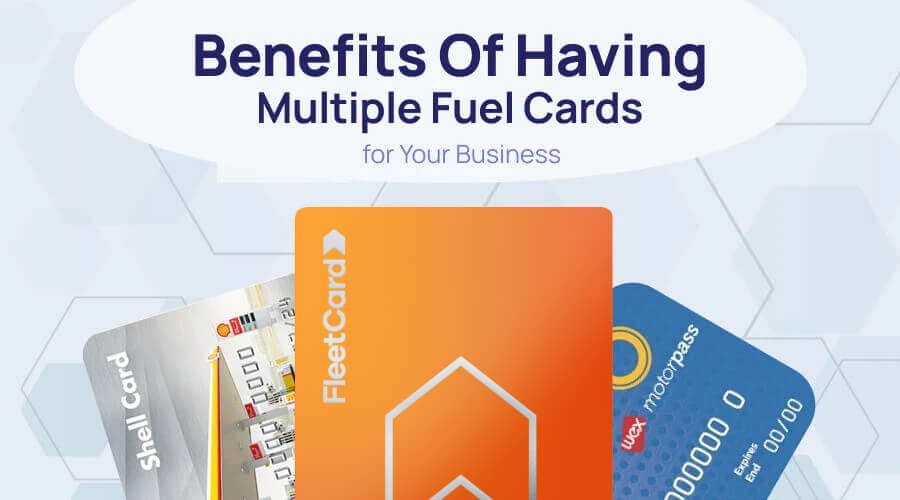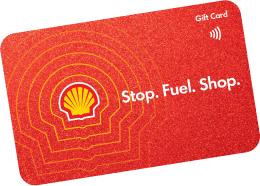Key points
As we head into 2025, Australia’s fuel network is evolving faster than ever, with significant growth in electric vehicle (EV) charging infrastructure, station expansions, and major rebrands reshaping the industry. When evaluating the best fuel cards for small businesses this year, we factored in these developments—like the rollout of EV chargers, network growth, and which stations are setting themselves up as key players for the future of hybrid and electric vehicles on Aussie roads.
2024 Recap: Growth, Change, and Future-Ready Moves
The past year saw big changes in the fuel industry as major providers focused on expansion, rebranding, and preparing for an electric future:
- BP Expands with X Convenience Acquisition
BP acquired South Australian-based X Convenience, adding over 50 locations to its growing network across South Australia and Western Australia. The move strengthens BP’s market presence and includes plans to introduce EV charging stations at these newly acquired sites, cementing BP’s role in Australia’s shift to cleaner transport options. - Viva Energy Rebrands Coles Express to Reddy and Acquires OTR
Viva Energy officially rebranded Coles Express sites to Reddy and also expanded its market presence with the acquisition of OTR, unifying its national convenience network. With over 700 sites now operating under these brands, Viva Energy is focused on offering a mix of fuel, EV charging, and strong in-store convenience—making it a one-stop destination for drivers. - Ampol Expands EV Charging with AmpCharge
Ampol ramped up its EV charging rollout under the AmpCharge banner. Notable milestones include the launch of its first dedicated EV charging site at Sydney’s East Village, with plans to install over 100 charging stations nationwide. Ampol’s commitment to clean energy infrastructure positions it as a major player for businesses managing hybrid and electric fleets. - Australia’s Fast-Charging Boom
Australia’s EV fast-charging network saw impressive growth in 2024, with the number of fast-charging stations increasing by 90%. This surge reflects a strong national commitment to supporting EV adoption, and forecasts suggest the number of charging sites will double by the end of 2025. - FleetCard Introduced FleetCard +Electric
FleetCard introduced Australia’s first all-in-one card for fuel, fleet, and EV expenses. This new offering combines access to over 90% of fuel sites across the country with more than 2,000 EV charging stations, thanks to FleetCard’s partnership with Chargefox. Designed for businesses transitioning to mixed or fully electric fleets, FleetCard +Electric simplifies expense management by consolidating all vehicle costs—fuel, EV charging, maintenance, and repairs—into a single monthly invoice.
Meanwhile, 2025 is already looking promising for Shell, with the addition of Blueberry 500kW ultra-fast chargers to key locations across their network. This move not only supports the growing demand for EV infrastructure but also positions Shell as a leader in future-proofing its stations for Australia’s electric vehicle transition.
These changes have solidified Viva Energy, BP and Ampol as frontrunners in Australia’s fuel and EV landscape. With expanded networks, forward-thinking infrastructure, and customer-focused rebranding, they’re ready to meet the needs of both traditional fuel users and the growing EV market.
The 6 Best Fuel Cards for Small Australian Businesses in 2025
| Brand | Rating | Best for | Premium Card? | Locations (Aus wide) |
| FleetCard | 5/5 | Most widely accepted | Yes | 6,000+ sites |
| Shell Card | 5/5 | Best for new businesses | No | 1500+ sites |
| WEX | 4.5/5 | Best for tradies | Yes | 6,000+ sites |
| AmpolCard | 4/5 | Best transport & logistics | No | 1,800+ sites |
| BP Plus Fuel Card | 4/5 | Best for scalability | Yes (for under 2 cards) | 1,400+ sites |
| 7-Eleven Card | 4/5 | Best budget | No | 700 sites |
The Best Fuel Cards 2025 Overview
If your fleet travels extensively, it can be hard to predict which petrol station will be available when the fuel light turns on. That is where FleetCard comes in. The Fleet Card is widely accepted at 90% of fuel sites in Australia, comprising 6,800 multi-branded fuel stations.
In addition, the card can be used at over 6,000 non-fuel partners, including repair centres and motor dealerships.
This high level of acceptance makes Fleet Card a top choice for small businesses that value convenience above all else. Fleet Card also streamlines business management with its consolidated tax invoicing for all transactions.
Plus, with its recent FleetCard+ offering, if you’re looking to switch to your fleet to hybrid/electric, FleetCard has you covered.
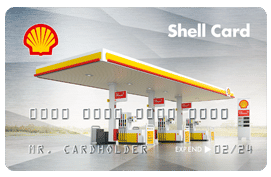
As a new small business, it can be frustrating to face rejection from premium fuel card providers like Fleet Card due to a lack of financial history.
However, the Shell Card offers a welcoming solution to help get your business on the move. Unlike other providers that reject new businesses that don’t meet the 12-month criteria, Shell is much more accommodating.
They often introduce shorter credit terms for newer businesses, giving them the flexibility they need to manage their fuel expenses.
As you build a stronger credit history with Shell, you’ll gain the ability to extend the credit terms, further helping your business grow. So if you’re looking for a fuel card solution that supports new businesses, the Shell Card is an excellent choice.
With the recent acquisition of OTR stations in 2024, there are now even more locations to fill up, making it an even smarter choice for your fuel card needs.
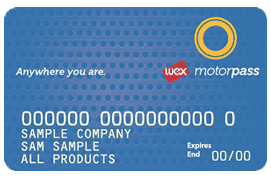
As a tradie, your daily routine likely involves managing a fleet of 1-5 vehicles, with your team hitting the road every day to get to various job sites. Ensuring they have access to fuel is essential, especially when you have young apprentices on your team.
However, managing the paperwork for fuel costs can become increasingly complicated as your workforce and fleet grow. That’s where the Motorpass fuel card comes in handy. As a multi-branded fuel card, it can be used to cover all vehicle-related expenses, from fuel costs to maintenance and repairs.
By consolidating all your vehicle expenses on one card, you’ll save valuable time, and money, and reduce paperwork. So if you’re a tradie looking to streamline your fuel expenses and manage your fleet more efficiently, the Motorpass fuel card is a wise investment.
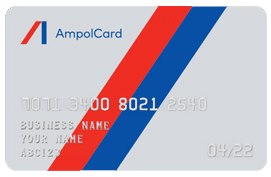
In the fast-paced world of transport and logistics, time is of the essence, and fleet managers are always on the lookout for ways to streamline operations.
Enter the AmpolCard (previously known as Caltex StarCard), an excellent option for those small businesses in transport and logistics who are seeking to optimise fleet management. With the AmpolCard, managing a small fleet of transport trucks is made easy through the use of their user-friendly online dashboard.
This interface provides the tools necessary to track vehicle spending and maintenance, ensuring that your fleet is always in tip-top shape. So, if you’re in the transport and logistics industry and looking for an efficient way to manage your fleet, the AmpolCard is a must-have tool.
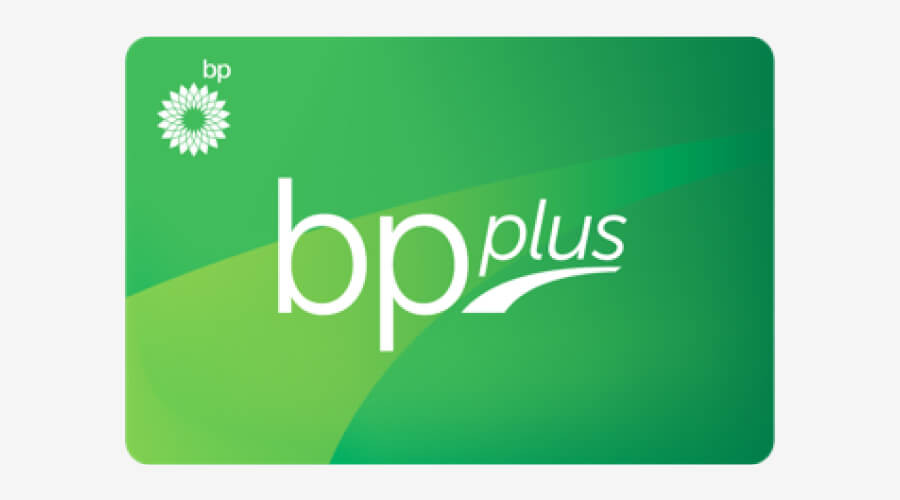
If you’re looking to scale your small business, the BP Plus fuel card is an excellent option to consider. With an impressive network of 1,400 national fuel stations, this card is particularly appealing to businesses that rely heavily on BP stations.
While really small businesses may face a premium fee for using the card, costing over $4.95 per card per month, the fees drop to $2.95 per card if you have more than 3 cards. This means that it’s more cost-effective to have three cards than just two.
Moreover, the BP Plus fuel card offers substantial discounts based on volume, meaning that the more fuel you purchase, the more significant the savings. So, if you’re looking to expand your small business and reduce fuel expenses, the BP Plus fuel card is an excellent tool to have in your arsenal.
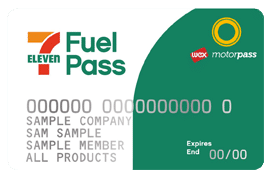
For small businesses looking to save on fuel costs without breaking the bank, the 7-Eleven Fuel Pass is an excellent option. This budget-friendly fuel card provides a simple way to track fuel expenses and offers some compelling introductory offers.
With an ongoing minimum discount of 2c/l, the 7-Eleven Fuel Pass is tough to beat, and it can be used across the entire WEX Motorpass network.
Best of all, there are no transaction fees associated with using the fuel card at any location, making it an attractive option for businesses of all sizes.
However, it’s worth noting that the fuel discount is only applicable at 7-Eleven sites. But, if you’re looking for a cost-effective way to manage your fuel expenses and regularly use 7-Eleven stations, the 7-Eleven Fuel Pass is an excellent choice.
Why Your Small Business Needs a Fuel Card
Every dollar matters in business, particularly when handling fuel costs. A fuel card is an effortless solution that not only saves time but also money. A fuel card operates like a credit card but is exclusively for fuel purchases. This means employees can fill up without needing cash or to file expense claims.
It also acts as an organised financial assistant, centralising all fuel transactions. Every fill-up is documented in a clear, single statement, eliminating the hassle of keeping track of receipts. Plus, with frequent discounts and savings, your business’s budget stretches further.
Basically, a fuel card streamlines your fuel management efficiently and cost-effectively, making it a wise choice for enhancing your business operations and boosting savings.
All-Brand or Single-Brand Fuel Cards?
Fuel cards in Australia fall under two major types: all-brand and single-brand.
All-Brand
All-brand fuel cards, like Fleet Card and WEX Motorpass, allow you to fill up at almost any fuel station across the country. This provides great flexibility for you and your employees. The downside is that these cards often don’t offer substantial pump-price discounts, and monthly card fees can be higher with transaction fees potentially applying.
Single-Brand
Single-brand fuel cards, like the Shell Card Fuel Card or BP Fuel Card, are dedicated to one fuel station. These cards have lower monthly card fees, better pump price discounts and typically no transaction fees unless used outside of the network. Some single brand fuel cards can also be used at other fuel sites, but you may be charged a transaction fee.
Which is Best for Your Business?
Choosing between an all-brand or single brand fuel card ultimately depends on your business’s fuel needs and preferences.
- All-brand cards are more flexible but may come with additional fees
- Single brand-cards offer better discounts and lower fees but restrict you to a specific fuel station.
Considerations When Choosing a Small Business Fuel Card
When choosing a small business fuel card, there are several important considerations to keep in mind. Here are a few:
- Fuel station coverage: It’s important to choose a fuel card that offers coverage at the fuel stations and brands your team uses the most. Some fuel cards may only be accepted at specific fuel stations or within specific regions, so it’s important to check the network coverage before selecting a fuel card.
- Discounts and savings: Many fuel cards offer discounts or rebates on fuel purchases, which can help your business save money on fuel expenses. It’s important to be wary of how long these discounts last – oftentimes it’s an attractive promo period to lure you in, which ends after 6 or 12 months. Some fuel card providers offer ongoing savings, however, so shop around and find the best fit for your small business.
- Fees and charges: Fuel cards may charge monthly fees, transaction fees, or other charges. Be sure to read the fine print and understand all the fees associated with a fuel card before signing up.
- Payment options: Some fuel cards may require direct debit payments, while others may offer more flexible payment options. Consider what payment options work best for your business and choose a fuel card that meets those needs.
- Reporting and analytics: Many fuel cards offer reporting and analytics tools that can help your business track fuel expenses and identify areas where you can save money. Be sure to consider what reporting features are important to your business and choose a fuel card that provides those capabilities.
- EV Charging Capabilities: With the rise of electric and hybrid vehicles, it’s essential to consider whether a fuel card provider supports EV charging. Some major networks, like Shell, BP, and Ampol, are integrating ultra-fast EV charging stations into their sites. If your business is transitioning to electric or hybrid vehicles, choosing a fuel card that includes access to EV charging infrastructure will ensure your fleet remains powered and future-ready.
Corporate Credit Card Vs Fuel Card
Choosing between a corporate credit card and a fuel card depends on your business’s specific needs. Here’s how they differ:
| CREDIT CARDS | FUEL CARDS |
| Allow your drivers to carry only one card for all their business expenses | Specifically designed for purchasing fuel for a fleet, rather than a credit card designed for entertainment purchases |
| The card will be accepted almost everywhere | Offer better fuel spending controls |
| Credit cards can offer rebates for a wide variety of expenses | Often provides reports with helpful data, such as fuel type, cost per unit, vehicle data, etc |
| If you use a credit card that offers frequent flyer miles, you can use those miles to cover your holidays, or offer trips as incentives for your team | Can provide information such as cost per km, km per litre. This information helps you to better manage fleet expenses |
| Can offer additional features such as travel insurance and interest-free periods | Fleet fuel costs are kept separate rather than lumped together with other expense data |
| Corporate card programs can be more susceptible to fraud and cloning than fleet fuel cards, which used closed merchant networks | Fuel card offers you more control and allows you to impose spending limits |
Is Your Business Ready for a Fuel Card?
Check if your small business is eligible for a fuel card today with Fuel Card Report’s eligibility checker. Simply enter your details, and our tool will align you with the most suitable fuel card options tailored to your business needs.
Don’t delay in streamlining and economising your fuel expenses. Check today and find the perfect fuel card to help your small business save both time and money.

